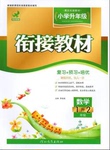题目内容
12.The practical suggestion came from the representatives _____ the new rule be adopted.( )| A. | when | B. | where | C. | which | D. | that |
分析 来自代表们的切实可行的建议是新规则应该被采纳.
解答 答案:D.根据 the new rule be adopted.可知整句是前面suggestion建议的内容,是同位语从句,故选D.另外注意看从句中用 be adopted,这里其实是省略了"should",因为这里用suggestion,它的从句中就要用虚拟语气,就是"should+动词原型",其中"should"可以省略,
点评 本题考查同位语从句,在熟知同位语从句连接词,充分分析句型以及suggestion从句中用虚拟语气"should+动词原型","should"可以省略,基础上便能选出正确答案.

练习册系列答案
 鹰派教辅衔接教材河北教育出版社系列答案
鹰派教辅衔接教材河北教育出版社系列答案 初中暑期衔接系列答案
初中暑期衔接系列答案
相关题目
2.So sudden ________that the enemy had no time to escape.( )
| A. | did the attack | B. | the attack did | C. | was the attack | D. | the attack was |
3.-Mike,_________,but your radio seems too loud.
-Oh,I'm sorry.I'll turn it down right now.( )
-Oh,I'm sorry.I'll turn it down right now.( )
| A. | I'd like to talk with you | B. | I'm really tired of this | ||
| C. | I hate to say this | D. | I need your help |
20.Family structure is the core of any culture.A major function of the family is to socialize new members ofa culture.As children are raised in a family setting,they learn to become members of the family as well as members of the larger culture.The family provides the model for all other relationships in society.Through the observations and modeling of the behavior of other family members,children learn about the family and society including the values of the culture.Family structure and their inherent relationships and obligations are a major source of cultural difference.
The family is the center of most traditional Asians'lives.Many people worry about their families'welfare,reputation,and honor.Asian families are often extended,including several generations related by blood or marriage living in the same home.An Asian person's misdeeds are not blamed just on the individual but also on the family-including the dead ancestors.
Traditional Chinese,among many other Asians,respect their elders and feel a deep sense of duty toward them.Children repay their parents'sacrifices by being successful and supporting them in old age.This is accepted as a natural part of life in China.In contrast,taking care of aged parents is often viewed as tremendous burden in the United States,where aging and family support are not honored highly.
The Vietnamese family consists of people currently alive as well as the spirits of the dead and of the as-yet unborn.Any decisions or actions are done from family considerations,not individual desires.People's behavior is judged on whether it brings shame or pride to the family.Vietnamese children are trained to rely on their families,to honor elderly people,and to fear foreigners.Many Vietnamese think that their actions in this life will influence their status in the next life.
Fathers in traditional Japanese families are typically strict and distant.Japanese college students in one study said they would tell their fathers just about as much as they would tell a total stranger.The emotional and communication barrier between children and fathers in Japan appears very strong after children have reached a certain age.
Although there has been much talk about"family values"in the United States,the family is not a usual frame of reference for decisions in U.S.mainstream culture.Family connections are not so important to most people.Dropping the names of wealthy or famous people the family knows is done in the United States,but it is not viewed positively.More important is a person's own individual"track record"of personal achievement.
Thus,many cultural differences exist in family structures and values.In some cultures,the family is the center of life and the main frame of reference for decisions.In other cultures,the individuals,not the family,is primary.In some cultures,the family's reputation and honor depend on each person's actions; in other cultures,individuals can act without permanently affecting the family life.Some cultures value old people,while other cultures look down on them.
(Adapted from R.L.Oxford & R.C.Scarcella,"A Few Family Structures and Values Around the Globe")
The family is the center of most traditional Asians'lives.Many people worry about their families'welfare,reputation,and honor.Asian families are often extended,including several generations related by blood or marriage living in the same home.An Asian person's misdeeds are not blamed just on the individual but also on the family-including the dead ancestors.
Traditional Chinese,among many other Asians,respect their elders and feel a deep sense of duty toward them.Children repay their parents'sacrifices by being successful and supporting them in old age.This is accepted as a natural part of life in China.In contrast,taking care of aged parents is often viewed as tremendous burden in the United States,where aging and family support are not honored highly.
The Vietnamese family consists of people currently alive as well as the spirits of the dead and of the as-yet unborn.Any decisions or actions are done from family considerations,not individual desires.People's behavior is judged on whether it brings shame or pride to the family.Vietnamese children are trained to rely on their families,to honor elderly people,and to fear foreigners.Many Vietnamese think that their actions in this life will influence their status in the next life.
Fathers in traditional Japanese families are typically strict and distant.Japanese college students in one study said they would tell their fathers just about as much as they would tell a total stranger.The emotional and communication barrier between children and fathers in Japan appears very strong after children have reached a certain age.
Although there has been much talk about"family values"in the United States,the family is not a usual frame of reference for decisions in U.S.mainstream culture.Family connections are not so important to most people.Dropping the names of wealthy or famous people the family knows is done in the United States,but it is not viewed positively.More important is a person's own individual"track record"of personal achievement.
Thus,many cultural differences exist in family structures and values.In some cultures,the family is the center of life and the main frame of reference for decisions.In other cultures,the individuals,not the family,is primary.In some cultures,the family's reputation and honor depend on each person's actions; in other cultures,individuals can act without permanently affecting the family life.Some cultures value old people,while other cultures look down on them.
(Adapted from R.L.Oxford & R.C.Scarcella,"A Few Family Structures and Values Around the Globe")
| Outline | Supporting details |
| (71)IntroductionA to family structure | Family structure is of great (72)importance/significanceA in different cultures. Children raised in a family will gradually learn how to (73)behaveA in a way which is acceptable in their culture or setting. 'Many cultural differences (74)arise/result/come/originateA from family structures. |
| Examples of Asian families | Traditional Asians (75)center/centreA their lives around family.Not only the individual but the family is to (76)blameA for any wrongdoings. O In China,parents'sacrific es will probably (77)payoff when children grow up.Children will also provide for the elders. O In Vietnam,it's not from the personal desires but from family considerations that decisions or actions are done. In Japan,children are (78)unwilling/reluctant/afraidA to share their emotions with father,thus making communication difficult. |
| Examples of families in the USA | Americans don't lay much emphasis on family values.(79)Instead/HoweverA personal achievement is considered more important. |
| Conclusion | Family structures and values (80)vary/differA in different cultures. |
7.---Where did you get to know her?
---It was on the farm ________ we both once worked in the 1970s.( )
---It was on the farm ________ we both once worked in the 1970s.( )
| A. | that | B. | which | C. | when | D. | where |
5.Do you have an English name,or have you ever considered taking one?This list of the UK's most popular names may be a useful ______.( )
| A. | profit | B. | connection | C. | progress | D. | reference |